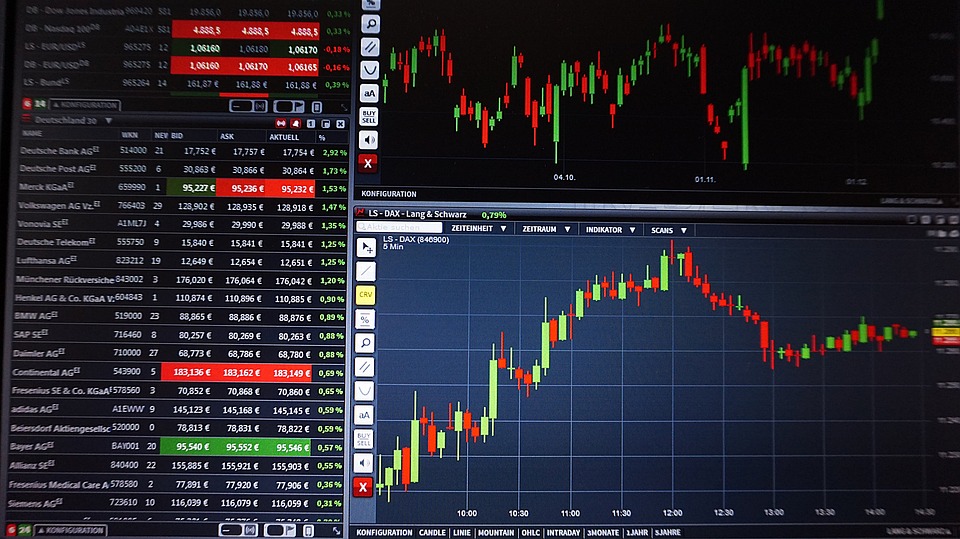Beyond the Numbers: Exploring the Impact of Market Indices on Global Economies
Introduction
Market indices, such as the S&P 500, the Dow Jones Industrial Average, and the FTSE 100, are often considered as reliable indicators of a country’s economic performance. They provide investors with valuable information, enabling them to make informed decisions about stocks, bonds, and other financial instruments. However, the influence of market indices goes beyond mere data and numbers. In this article, we will explore how market indices impact global economies and shed light on some frequently asked questions regarding their significance.
Understanding Market Indices
Before delving into their impact, it is crucial to understand what market indices are. These indices are designed to measure the performance of a specific segment of the market. Generally, they are composed of a basket of stocks that are representative of a particular sector, industry, or the overall market in a given country or region. Their values are calculated using a formula that takes into account the prices or market capitalizations of the constituent stocks.
Impact on Global Economies
1. Reflection of Investor Sentiment: Market indices reflect the overall sentiment of investors towards a specific economy or market. When an index is on an upward trend, it often indicates optimism and confidence, attracting investors. Conversely, a downward trend may signify apprehension or uncertainty, leading to a potential decrease in investments.
2. Investment Attraction: Market indices can attract both domestic and foreign investments. A well-performing index signals stability and growth potential, making it an attractive investment option for investors seeking returns. Additionally, global investors often consider market indices as a benchmark for diversifying their portfolios across different countries or regions.
3. Economic Indicator: Market indices serve as essential economic indicators by providing insights into the overall health of an economy. Positive index performance can imply strong economic growth, increasing employment opportunities, and consumer spending. Policymakers and economists closely monitor these indices to gauge the effectiveness of their policies and identify potential economic challenges.
4. Impact on Businesses: Market indices have a profound impact on businesses operating within the index constituents. Positive index performance can provide companies with increased access to capital markets, making it easier for them to raise funds. This enables businesses to expand their operations, invest in research and development, and create job opportunities.
5. Wealth Creation: Market indices have the potential to generate significant wealth for investors. A well-performing index can lead to capital appreciation in investment portfolios, directly impacting individuals’ net worth. This increased wealth can contribute to economic growth by driving consumer spending and expanding the tax base for governments.
Frequently Asked Questions (FAQs)
Q1: How are market indices calculated?
A1: Market indices are calculated based on their specific methodologies. Generally, two common methods include price-weighted and market capitalization-weighted. Price-weighted indices give more weight to stocks with higher prices, while market capitalization-weighted indices provide higher weightage to stocks with larger market capitalizations.
Q2: Can market indices accurately predict economic recessions?
A2: Market indices are valuable tools for assessing the overall health of an economy, but they cannot always predict economic recessions with absolute accuracy. While declining indices may indicate possible economic downturns, several other factors contribute to recessions, such as geopolitical events, inflation, and the business cycle.
Q3: Do market indices impact emerging economies differently?
A3: Market indices’ impact on emerging economies can differ compared to developed economies. Emerging economies might experience higher volatility as they are more susceptible to external factors, such as foreign currency fluctuations and changes in investor sentiment. However, a well-performing index can attract foreign investments, aiding emerging economies in driving economic growth.
Q4: Can market indices be manipulated?
A4: Theoretically, market indices can be manipulated, but regulators and exchanges have stringent measures in place to mitigate such activities. Manipulation attempts, such as insider trading or price manipulation, are illegal and subject to severe penalties. Market surveillance systems aim to detect any suspicious activities, ensuring market integrity and fairness.
Conclusion
Market indices play a significant role in shaping global economies. Beyond being indicators of performance, they impact investor sentiment, attract investments, reflect economic health, influence businesses, and contribute to wealth creation. However, it is essential to understand that market indices are just one aspect of a comprehensive economic analysis and should not be solely relied upon for decision-making. By considering the broader economic landscape, investors, policymakers, and economists can gain a holistic understanding of the impact of market indices on global economies.




